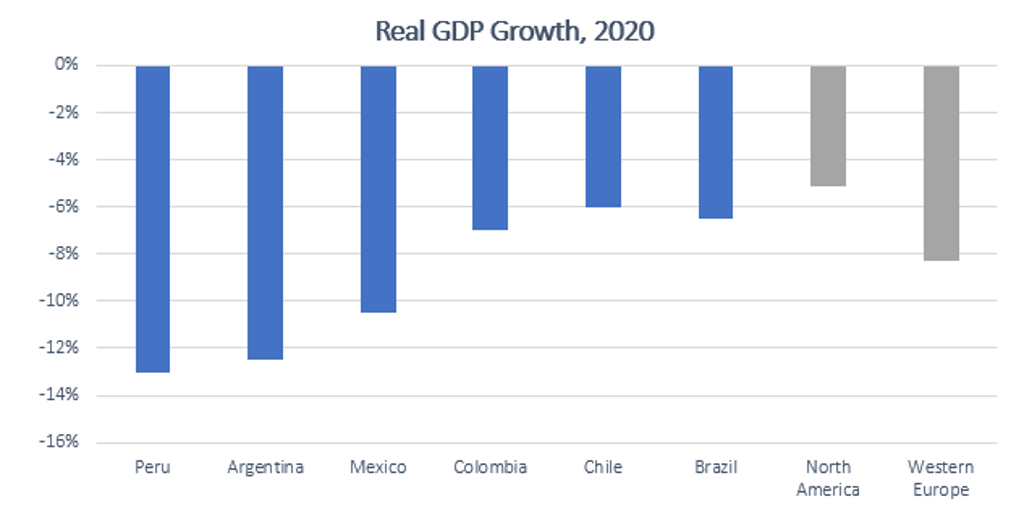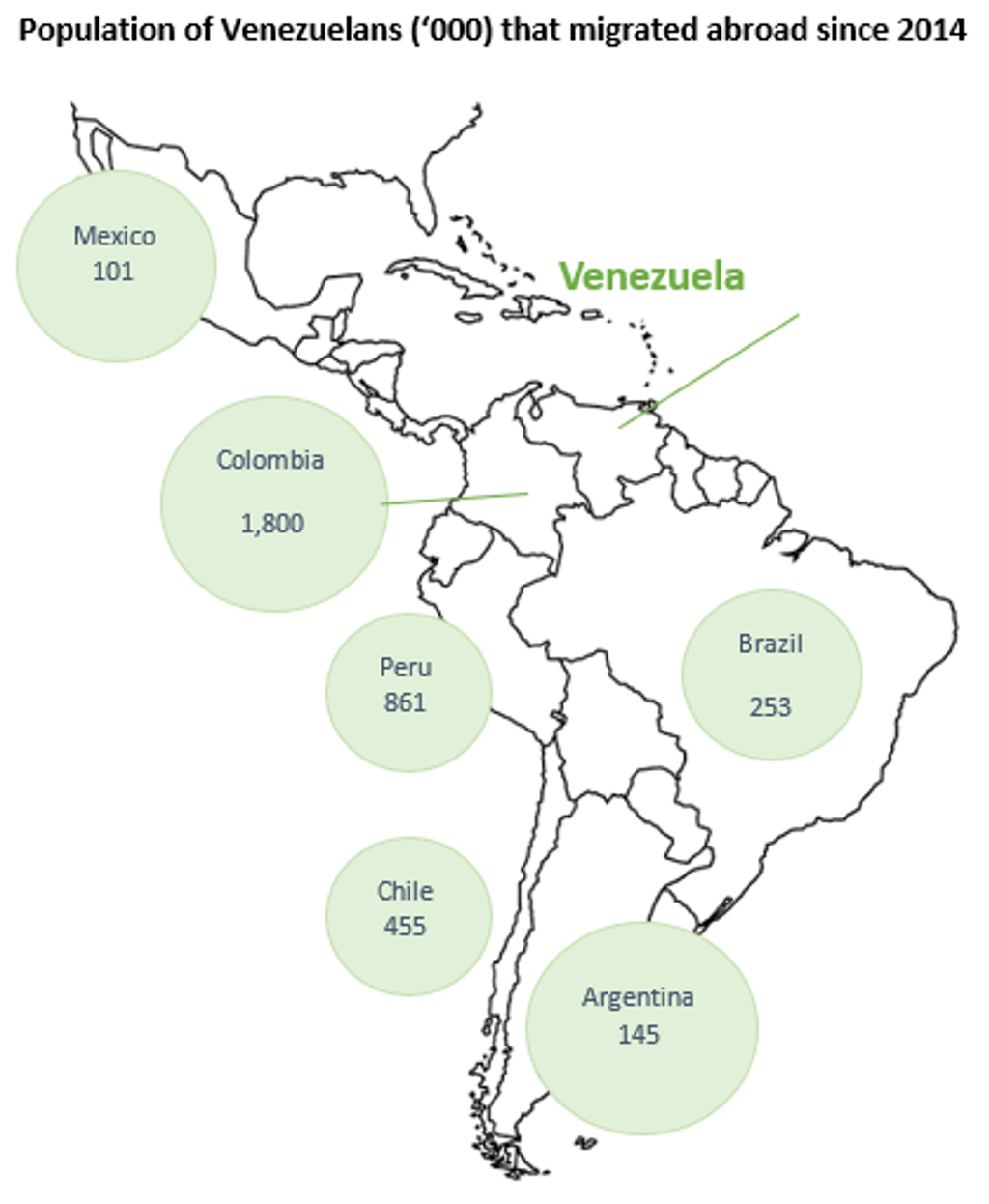Latin American economies shrunk by more than 8% on average in 2020. Researchers at the Inter-American Development Bank have found that in past recessions when GDP contracted by 5% or more, unemployment took an average of nine years to return to its previous level. According to The Economist, income from wages in Latin America fell by 19.3% in 2020, compared with a global average of 10.7%, and indicates that the region’s lower-middle classes will be the most affected.
Source: Euromonitor Macro Model Baseline
This reality fosters the concept of frugal innovation, given the inadequate fiscal and monetary stimulus in the region. Consumers are thinking with a recessionary mindset, as discretionary spending declines due to the uncertain economic environment.
Overlapping with the pandemic is the Venezuela refugee crisis, in which nearly 6 million people have fled economic instability and political turmoil, crossing borders by any means necessarily. Informal work and gig economies mean that these people are often at the bottom of the “consumption pyramid”, but many others also start their own businesses to cater to the needs and nostalgia of these immigrant communities.
Nostalgia for products from your home country
The comforts of “home” are key for immigrants anywhere, as are maintaining traditions and having access to more tangible things, like typical foods and beverages. In the case of Chile, a common country of destination for migrants in the region, this means there has been a sustained and marked increase in the demand for packaged food staples and snacks such as rice, beans, corn flour and plantain chips. Within beverages, examples include malt (cebada tostada/malta), Colombian liquor (aguardiente Antioqueño), and flavoured carbonates.
While immigrants have long helped to spread local cuisines far beyond their original borders, in recent years diaspora communities have also become a key growth driver for foodservice chains, with new arrivals often proving to be loyal customers of the brands and products with which they grew up. Guatemalan-based Pollo Campero has made reaching out to overseas communities a key part of its international expansion plans.
SEB Groupe owned Colombian company IMUSA has focused on Hispanic style cookware and plastic food containers, claiming to be the number one Hispanic housewares brand in the US. With products such as the “Arepa Maker” and the “Cuban Sandwich Maker & Multi-use Grill”, the company is trying to carve out a growing niche within the very competitive US small cooking appliances market, by tapping into the millions of immigrants from across Central and Latin America as well as the Caribbean.
New routes to consumers
Discounters have flourished over the review period, particularly in Colombia, Panama and now Chile as consumers continue to migrate to the modern channel, taking advantage of a large offering of private label products at competitive prices. People will increasingly look to economy ranges and private label products. More focus on private label gives large retailers an upper hand while their supply chains remain volatile and inventories are uncertain.
Direct selling and e-commerce last-mile players have also presented themselves as a way to generate income, especially for those arriving in a new country. Individuals often lack the paperwork necessary to work within the formal economy. Colombia alone has taken in more than 1.8 million Venezuelans since 2014, and they are a significant contributor to Rappi’s workforce there.
Within consumer health, Colombia has developed a new a pharmacy model (Salud Market, Locatel Colombia, Farmatodo) that allows you to send medication across borders, in this case to Venezuela, although the model is expected to expand to other countries in the region.
Population of Venezuelans (‘000) that migrated abroad since 2014
Source: Regional Inter-Agency Coordination Platform for Refugees and Migrants from Venezuela
Can fintech transform Latin America’s financial sector?
An important part of the process that allows migrants to thrive is their accessibility to a country`s financial system. Services such as sending or receiving money, being able to rent a home or having access to credit are basic needs that are a big concern for a population that is usually undocumented, work in the informal market, lack guarantees or do not possess enough credit risk profile to purchase goods or invest in their entrepreneurship ideas.
While private institutions have legal boundaries to providing fuller access, central banks play an important role in the design of inclusiveness policies for financial institutions. Initiatives include Brazil’s Central Bank’s Pix, an instant payments system that allows consumers and (informal) companies to make free-of-charge money transfers at any time, without requiring debit or credit cards.
The needs of low-income communities combined with the nostalgia one has for their home country will be a key driver in both consumer demand and business innovation, and the harbinger of new trends for a region under duress.
Authors of this article: Paula Goñi, Felipe Carreirao, y Carmen Silva


